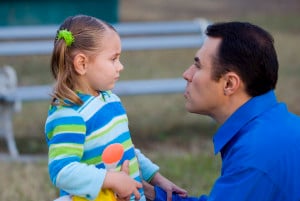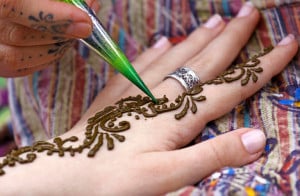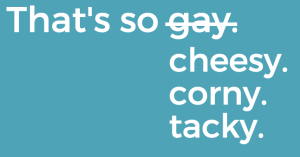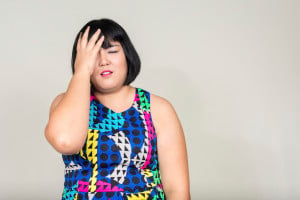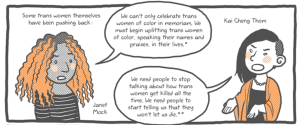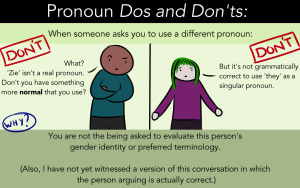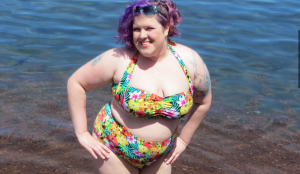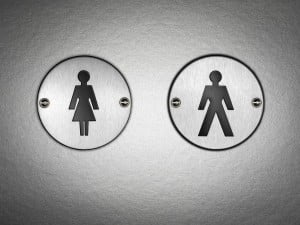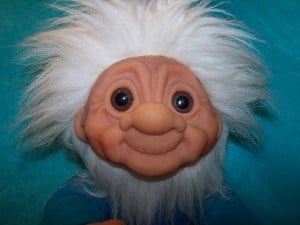Racial essentialism means that Black folk, Latino folk, disenfranchised communities only engage in issues that directly pertain–explicitly pertain–to race. So there can’t be any intersectional outreach or movement organizing or coalition building.
Where are you getting this from, black folks don’t do feminism? We are feminists! What are you talking about? I don’t even know how to respond to that because that’s an oxymoron–black folks don’t do feminism.
I’m a feminist and I’m black, so I don’t believe in that.
At first, I did not consider myself a feminist because I had heard a lot of stereotypes. That’s how I thought of feminism: the bra-burning stereotypes, that feminist women were very masculine, lesbians, all of those types of stereotypes.
Well, this gets into the whole idea of feminism being the radicalization of white women.
They associate feminism with a certain white, middle-class indulgence.
I understand civil rights because I walked, I marched, stuff was thrown on me. So I understand that. If we’re talking about civil rights, I understand that. If we’re talking about feminism, that has to be definable to me by every individual who is using that hashtag. What is feminism to them? I know what it means to me, and it means–kind of like being selfish, as I’ve seen it, as it’s been thrown at me.
I think that there is a lot of confusion about what feminism signifies.
In the Black community, black women tend to be the strongest of the black race, so to speak. We hold it down on our shoulders, black women. I’m a feminist.
Obviously it’s a more matriarchal society, or culture, than the larger mainstream culture. So, the idea of women working or not working: every woman in my family, going back to my great grandparents, my great grandmothers, worked. So the concept that you can have a family and have a job is not an alien concept for us. It’s not a new thing.
My mother, who I think is a groundbreaking feminist, would never have identified herself that way. She was independent-thinking, she worked, she made money, she was a leader in her field–she was a teacher and principal in public schools where I grew up–and the relationships she had with my father was clearly one of equality. My mom handled everything–she handled the bills. I never heard my father say, “You need to do this, you need to do that.” It just wasn’t it.
It may not be the way that we academically define it, or include them in our academic discussions, but all the women in my family are feminists. Because they’re still here.
I don’t know if we do it as a political movement. A lot of times I see black women who would not get up on a pedestal and be marching in the street. There are some of us; I would consider myself one.
When I first encountered feminism–gosh, I’m dating myself, but twenty years ago when I first entered college as a freshman, I did think that feminism really was this white female straight middle class approach to equality. What about race?
We have this conflict with European-American feminists, first- and second-wave feminists, and African American feminists, who are coming from a radically different perspective than white women. Obviously because we have a history of being laborers, of being slaves, of being commodities.
Then I was introduced to black feminism, which actually looks at how capitalism, racism, sexism, and gender inequality organize the lives of black women.
There is black feminism. There’s scholarship around it. There’s activity. There’s ideology.
We are running blogs about black feminism, be that the Feminist Collective, be it the Feminist Wire.
Lots of people that I studied and based my degree on were self-identified black feminists such as Audre Lorde, of course, Kimberlé Crenshaw.
Like Ida B. Wells, like Shirley Chisholm, like literary critics and giants in feminism, like Patricia Hill Collins and Angela Davis and bell hooks and Cherríe Moraga.
Great Alice Walker called it “womanism” just to make it a different name.
You can get into the nuances of womanism and all of that, but I think the core is do we as black women identify as women over black. Is there a balance there, is one outweighing the other? For me, it’s certainly something that I’ve been conflicted by at times because I first identify as black. If they came down to it and they were putting all the black people on one side and all the women on the other side, and I had to choose, I’d probably be with the black folk. I’m just saying.
There’s a belief that because we are black women and we are in a struggle, the struggle is a unified struggle with black men and women against everything else in society. Unfortunately, black women tend to get lost in this idea of “the black struggle.”
The idea that somehow black women are advocating for gender justice, are advocating for full self determination, that they are somehow being race traitors–that they are undermining the trajectory of trying to redeem black masculinity. And the redemption of black masculinity, unfortunately, has been a lynchpin within civil rights movement struggle and within black power movement struggle.
And so what we traditionally have, through my experience, is men saying, “It’s okay, we’re gonna get to you, black woman. But let us get through the door first, and then we’ll bring you along.”
As far as women being respected for what they do and having the chance to get equal work and all that kind of a thing, I just don’t think you’ll find that many black men that feel that women shouldn’t have an opportunity to have the same rights that they do.
I’m a feminist. I believe that women should have the right to do what they want, when they want it, no different than men should. I’m willing to do what’s necessary to help that be the case. I look at things like disparity in wages, legislation about women’s bodies, and I think it’s utterly absurd.
The young women that I work with–I have a women’s leadership project based here in LA, in south LA schools–do not identify with the term because it’s outdated, it’s outmoded, and it hearkens back to this bygone era when we did not have the right to be in the workplace, to wear what we want, to have freedom of speech.
It was really interesting because you look at young black women and you saying you want to be in control of your career and you saying, “I’m a career woman, I’m an independent woman, I’m doing my way…” That’s a feminist approach. But they never tag themselves as that.
Our challenge is really making them see the connection between their marginalization, what they’re experiencing, and the marginalization and visibility of foremothers in the movement.
The more that I think about it, I could definitely see myself being a feminist in a way that’s sustainable through a black lens.
After learning more about it and debunking a lot of those myths which, again, I think are not always true at all and are really unfair, I do consider myself much more of a feminist now because I realize it’s about equality. It’s about promoting equal pay, for example. And I think that’s really important to get the idea out that feminism is not just one thing. It’s a variety of things.





